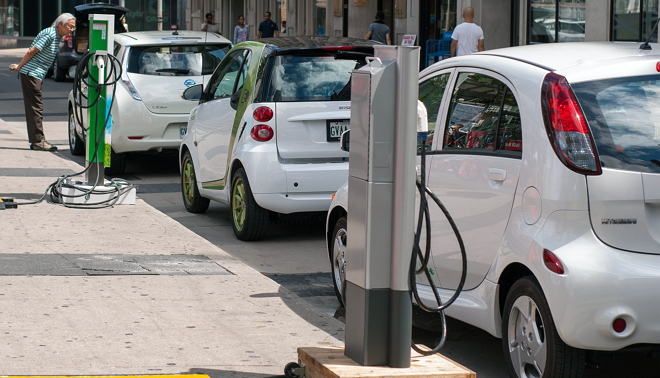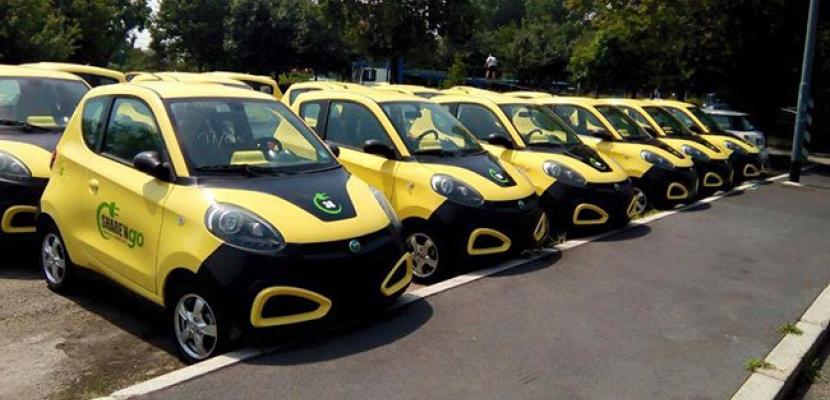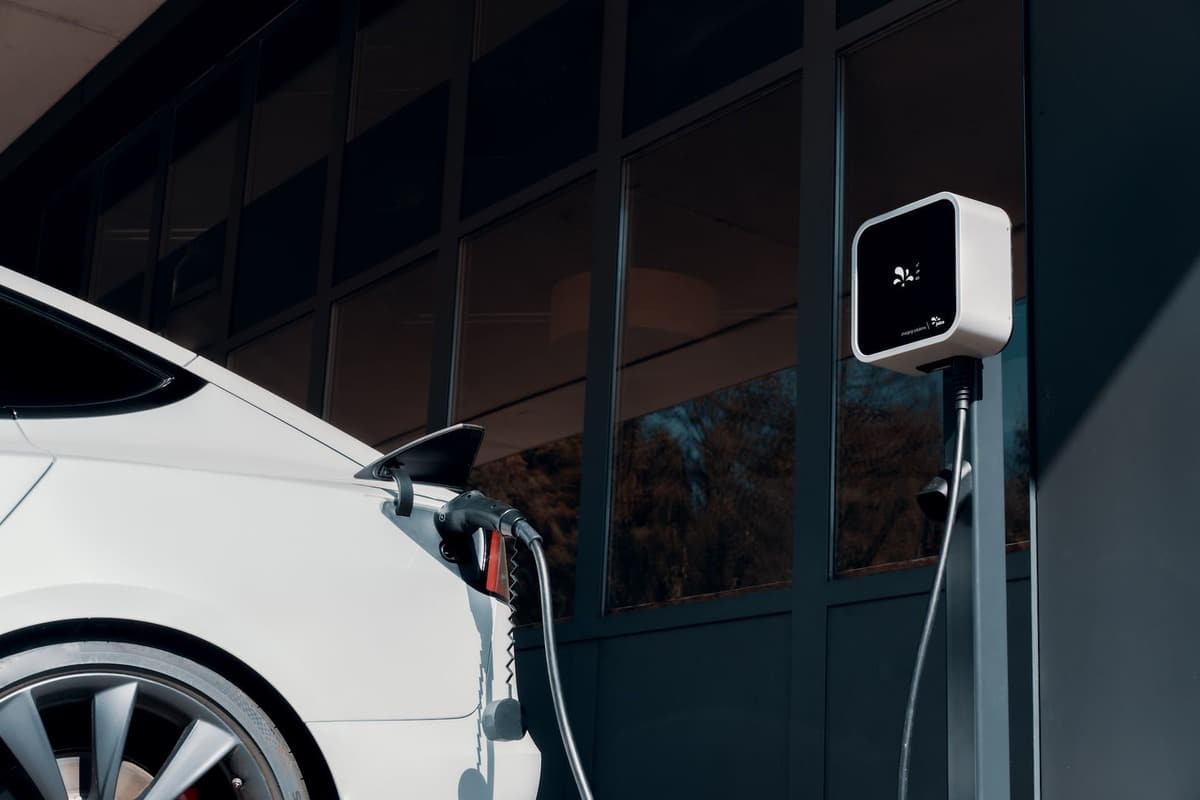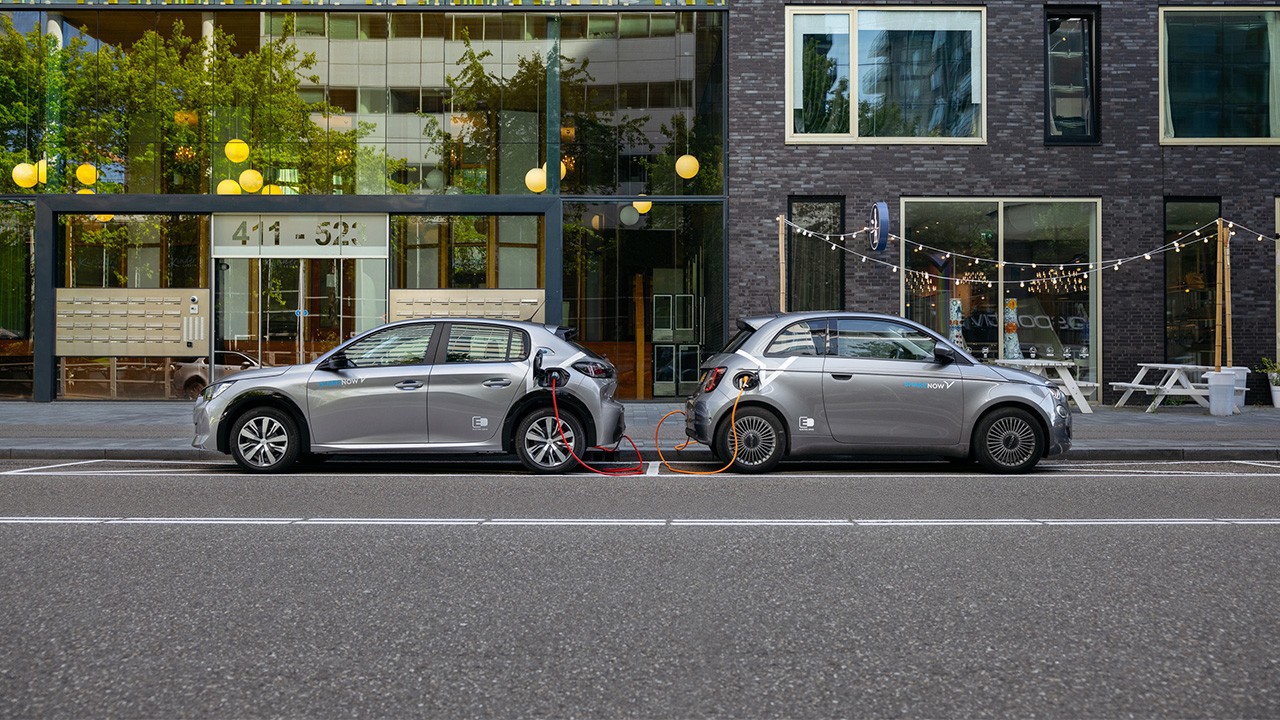As we venture into a future where sustainable solutions reign supreme, electric vehicle (EV) sharing services are taking pole position. This emergent trend, a quiet revolt against traditional car ownership, is a game-changer that could drastically reduce carbon footprints globally. As we charge into this pulsating era of motoring, let’s buckle up and explore how this sustainable transport revolution is gaining momentum, and why it could spell the end of the combustion engine’s roaring reign.
The Concept of Electric Car Sharing

Electric car sharing represents an innovative transportation concept that offers individuals the convenience of car usage without the hassle of ownership. This synergistic blend of automotive sharing and electric technology brings along an array of economic, eco-friendly and convenience benefits that revolutionize the way we navigate our urban environments.
Firstly, let’s decipher what’s it all about. In simplest terms, electric car sharing gives you app-based access to a fleet of electric vehicles stationed strategically throughout a city or community. You can reserve, drive, and return the cars as per your need with a nominal fee. Costs involved typically encompasses things like the extent and duration of your travel, or a periodically billed membership.
Flexibility is a pivotal advantage here. Unlike traditional car rentals or leasing services that call for a multiple-day obligation, electric car sharing services allow users the liberty to book and pay for only the hours they need, potentially down to a minute. It also shuns the dependency on a single vehicle. Regardless of where you are, there’s likely an EV waiting nearby to assist you. In essence, you carry your own fleet in your pocket.
So, how does it work? It operates much like other sharing economy models. After setting up an account with a service provider and downloading their app, you get a digital map pinpointing the vehicles in your proximity. Reserve the car that suits you, reach the location, unlock it through the app, and you’re good to navigate. Return the car at a pre-designated station, and that’s it. Simple and seamless.
One might ask, why specifically electric vehicles? Electric cars offer numerous advantages over their carbon-driven counterparts. They’re cleaner, quieter, cheaper to operate and maintain. Given their environmental benefit, the usage plays a role in reducing carbon footprints in urban areas, motivating more service providers to opt for electric fleets. Also, governments worldwide are inspiring the transition towards sustainability through beneficial policies and subsidies, making the adoption of EV for these services plausible.
From an economic standpoint, electric car sharing services tick the right boxes. It bypasses the substantial upfront cost of owning an electric vehicle, not to mention the peripheral expenses like insurance, servicing, parking, and depreciation. Plus, should you need a vehicle for a shorter duration or single trip, why invest in a deprecating resource when you can simply pay for your usage?
Given the escalating environmental consciousness and an interconnected digital lifestyle, electric car sharing services are shaping up as a testament to smarter, sustainable commuting. Without the need to own, insure, maintain or even park a vehicle, one stands to benefit from the flexibility, economics, and eco-fraternity of this novel transport medium. True progress lies not just in new technology, but in its accessible and responsible application. And that’s what electric car sharing embodies.
Advantages of Electric Car Sharing Services

Going back in time, car sharing isn’t a shiny new idea birthed by the recent digital boom. No siree, it’s been around for quite a bit. Since the ’40s, actually, in a sleepy Swiss village that float-served as the lab where cooperative auto sharing was trialed. But for years, it existed in relative obscurity, an eccentricity away from mainstream consciousness.
Cue the ’90s- a decade marked by flannel shirts, grunge rock, and the dot-com bubble. Alongside these trends, car sharing first found its highway legs in Europe, North America, and Asia. While the programs were admittedly rudimentary by today’s standards – think dedicated parking spots and a literal key-exchange – they nonetheless set the stage for what was to come.
The infusion of technology in the early 2000s kickstarted the transformation of car sharing from a niche endeavor to a mainstream phenomenon. Innovative companies, like Zipcar, began to exploit advancements in mobile technology and internet connectivity to make the process more flexible and user-friendly. No longer did one have to deal with clunky keys or predetermined schedules. With a few smartphone swipes, one could book a ride and zoom off.
The real game changer, however, came with the rise of platform-based services like Uber and Lyft. These rideshare giants introduced a new model that unshackled car sharing from the traditional confines of vehicle fleets, designated pick-up locations, and set return times. Their meteoric success demonstrated the appetite for flexible, on-demand mobility, and pushed the humble concept of car sharing into overdrive.
In the past few years, the lineage of car sharing has sprouted exciting new branches, one of them being electric car sharing. This evolution points to a major transition in the automotive world – one powered by electrons, not hydrocarbons. It’s the next step, a bridge connecting the proven concept of shared mobility with a promise of a cleaner, greener future. It’s early days yet, but from the look of things, this electric rendition of car sharing is not just a passing fad, it’s the future of urban commuting.
Popular Electric Car Sharing Services
Rolling quietly into our cities, they’re more than just four wheels and an engine. This new breed of nifty, emissions-free commute companions are elbowing their way past gas-guzzlers and making room for themselves in the realm of personal urban transportation. They’re electric car sharing services, folks. And they’re here to revolutionize the way we get from point A to point B.
For the uninitiated, the crux of this revolution boils down to one fundamental shift – From ownership to service. It’s no longer about possessing a set of wheels; it’s about access. And boy, isn’t it convenient? Users can map out, reserve and unlock their chosen transport pod – all with a couple of taps on their smartphone. With these services, every nook and cranny of your city is just an eco-friendly drive away. No strings, no maintenance issues, and certainly no guilt trips about greenhouse emissions.
And it’s not just the convenience that’s driving this uprising on our streets. Economics, my friends, plays a just as crucial role. We know that maintaining a personal vehicle is a hungry monster feasting on your savings – insurance, fuel, maintenance, parking tickets, oh the horror! But with these electric car sharing services, the financial burden lightens considerably. You pay just for the kilometers covered or the hours used. The rest? It’s taken care of by service providers.
But wait, there’s more. With driver-assisted features embedded into these high-voltage horses, this is a gateway to the future of autonomous vehicles. For now, you might still be in the driver’s seat, but worry not because these cars are smart, and they’re only getting smarter. Enabled with cutting-edge tech, they offer a preview of what’s brewing in the world of self-driving cars.
Also, let’s not forget the snowball effect on urban infrastructure and lifestyle. As electric car sharing grows in popularity, the demand for charging infrastructure parallels, paving the way for more extensive adoption of electric vehicles in cities around the globe. And remember, less parking space required means more space for us to enjoy. It’s sparking a new dialogue about infrastructure planning in our cities.
In essence, electric car sharing is not just a revolution, it’s an evolution. It’s redefining what it means to “car” today. It’s about pitching in for our planet while basking in the perks of convenience and technology. With this revolution on wheels, we’re riding straight into a future that’s greener and smarter. Buckle up, because this ride is just getting started.
The Role of Electric Car Sharing in Sustainability

What if I told you that you could take a joyride without leaving a trail of noxious fumes in your wake? Well, welcome to the world of electric car sharing services, where ecological responsibility meets roadway exhilaration. Put simply, switching to emission-free driving is like throwing a party for Mother Nature and leaving with a reduced carbon footprint.
Not convinced? Here’s some snack-sized science served hot: traditional vehicles, with their internal combustion engines, produce a noxious cocktail of carbon dioxide, nitrogen oxides, and hydrocarbons, all of which contribute to climate change and air pollution. Electric vehicles (EVs), on the other hand, emit nothing more diabolical than a hum as they whisk along the tarmac.
From a power production perspective, EVs are once again winners in the environmental stakes. They draw power from the grid which, with an increasing share of renewables, is becoming less carbon-intensive. Thus, even when considering the source of their electricity, EVs drastically reduce overall emissions compared to conventional gas-guzzlers.
The rise of electric car sharing services has also done wonders in reducing the overall number of vehicles on the road, consequently cutting down on congestion and air pollution. Think of it like a communal closet of cars, with more people sharing less steel. This not only limits the demand for raw materials used in car production but also reduces the space needed for parking, liberating urban landscapes for green spaces.
Opting for these shared EVs also inherently promotes trips that are better planned and combined, reducing unnecessary mileage and in turn, further decreasing pollution. Psychologically, users of these services become more invested in sustainable practices, fostering a mindset shift that places a greater value on our planet’s well-being.
In the grand scheme of things, electric car sharing services are charging up a silent revolution – shifting the conversation from “What is the mileage?” to “What is the impact?”. With their advent, they’re not only revving up the auto industry but also leading a consorted push towards a more sustainable and earth-friendly future. And that, gearheads and eco-warriors, is a revolution worth acknowledging, cheering for, and most importantly, driving towards.
So the next time you need a ride, before reaching for those gas-station-bound car keys, consider opting for a shared electric ride. And as you zip through the streets in peaceful silence, remind yourself – this is not just transport, it’s a statement. You’re not just driving; you’re steering towards a cleaner, greener tomorrow.
Future Prospects of Electric Car Sharing Services

As we drive through the ever-shifting landscape of transportation, many economies across the globe are now switching gears to adopt electric car sharing services. Countries like Norway and China are already leading the index in adopting electric mobility solutions and other nations are set to follow. With the dawn of the era of shared mobility, there’s a very likely possibility that progressively fewer people will own private cars, instead opting for shared solutions.
A study by McKinsey predicts that by 2030, a third of all vehicles sold will be electric. This is spurred by the falling costs of electric vehicle technology, policy supports, and surging consumer demand. Concurrently, ongoing advancements in autonomous vehicle technology will add further momentum to the electric car sharing trend by cuttailing operations cost, thereby making these services even more affordable for end users.
Market trends extrapolate that electric car sharing will likely see an influx of fresh investments, growing exponentially in the years to come. Business models, too, are expected to diversify—besides the well-established pay-per-use model, subscriptions for unlimited use or other variations will likely emerge, catering to the needs of different user segments.
Moreover, electric car sharing service providers have been innovative in their expansion tactics, branching out into rural and suburban areas previously deemed unprofitable due to sparse population. By partnering with local businesses and institutions, and centring on user needs for commuting or daily errands, they aim to gather sustainable user basis in such areas.
On the regulatory front, as policymakers grow increasingly aware of the benefits of electric car sharing — such as reducing traffic congestion and carbon emissions — it’s unlikely they will slam the brakes on this trend. Instead, they will most likely come up with favorable policies and incentives to accelerate this shift.
Nevertheless, it’s not all plain sailing. The future ride of electric car sharing will need to steer clear of several bumps – ranging from infrastructural developments like robust charging stations to overcoming user biases against shared vehicles.
With the right regulatory support, infrastructural growth, and technology advancements, the future of electric car sharing services, albeit challenging, seems bright. The road ahead spells significant transformation—a revolution on wheels that is rapidly changing how people move around the world.
FAQs
What is the revolution in electric car sharing services about?
You know how the reinvention of the wheel blew everyone’s moccasins off? Well, this is it. Electric car sharing services are essentially tossing the car keys to the future – it’s cheaper, environmentally friendly, and best of all, you don’t have to worry about where you parked last night.
Why are electric cars gaining popularity in the sharing economy?
Well, sit down my friend, and let’s talk. Picture this: Imagine frolicking amidst a herd of unicorns on a rainbow… That’s the level of awesomeness we’re talking about. With electric cars, you’re not only joining the ranks of the “cool kids”, but you’re also releasing less exhaust into the atmosphere. It’s like getting a high five from Mother Earth herself!
Are there any drawbacks to using electric car sharing services?
Well, nothing is perfect, and while electric cars are super awesome (high five Mother Earth!), they could definitely use some improvement. For instance, the charging stations don’t pop up as often as you’d like (or need). It’s kind of like a desert mirage but less fun because instead of an oasis, it’s just your car running out of battery in the middle of rush hour.
Conclusion
Electric car sharing services are more than just a trend – they’re an eco-friendly, economical revolution rolling onto the world stage. With these services, we are taking massive strides towards reduced carbon emissions and improved urban mobility. The road ahead seems to be electrifyingly promising. It’s a dynamic metamorphosis – a veritable ‘charge’ towards a greener, made-easy driving experience set to redefine our traditional concepts of vehicle ownership and transportation.
